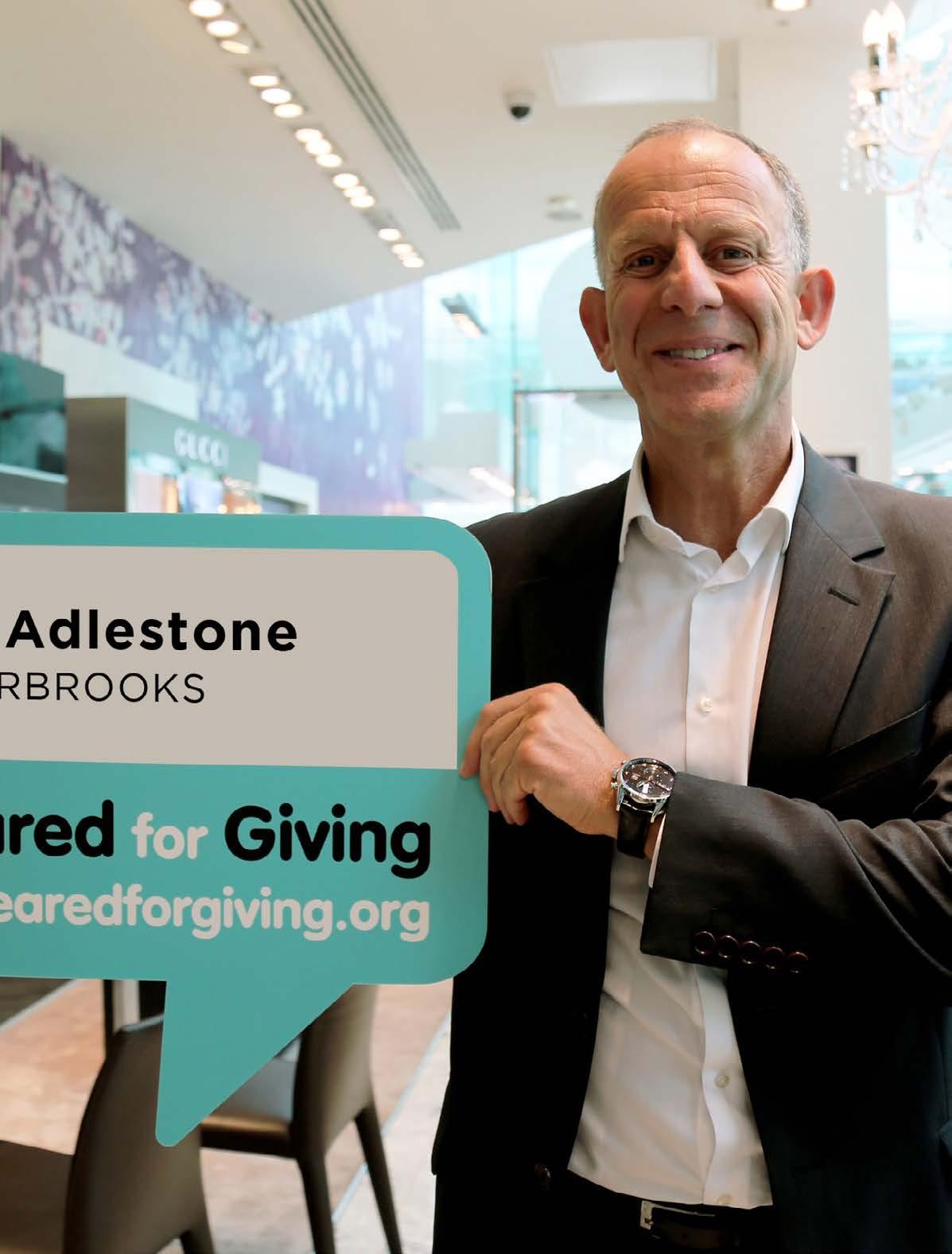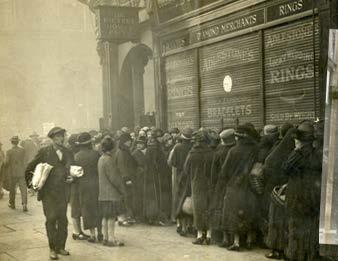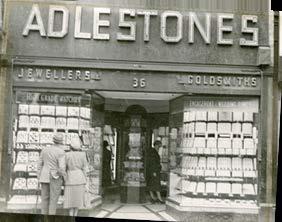
6 minute read
A shinning example
A SHINING EXAMPLE
Beaverbrooks sets the gold standard when it comes to giving back to the communities where it does business. The jewellery business, which has 71 outlets across the UK, has given away more than £14m to over 750 different good causes since 2000.
Advertisement
That giving is carried out through the Beaverbrooks Charitable Trust, which hands out 20 per cent of the company’s post-tax profits to charities, every year. The £144.7million turnover company also has a £250,000 fund where workers can apply for cash for a charity of their choice. That’s separate to a company scheme that encourages each of its stores, plus head office departments, to choose its own individual charity and then donates £100 for every member of staff. Beaverbrooks pledges to match any sums that its “colleagues” raise for local charities. It is also a driving force in the workforce giving campaign to get more people to give money to charity through their salaries. The ethos and commitment to helping is not simply about fundraising, it is really about becoming truly involved. And that is why every one of those 980 colleagues is encouraged to become active in good causes – and get 16 hours paid time off every year to take part in charity work in their community. Mark Adlestone is the thirdgeneration head of the family-owned business. His great grandfather arrived in Britain from Russia in the 1880s and Beaverbrooks has just celebrated its centenary.
Making a difference
He says the retailer’s philanthropic approach is driven by nothing more than the recognition that it is “the right thing to do”. He says. “It’s very much part of DNA of the company, it has always been there and is an integral part of what the
company is all about. We take giving away money as seriously as we do making it. “We are very much of the opinion that as a business your reason for existing is to make a difference to the world around you. If we were just financially successful and didn’t engage with our communities, that wouldn’t sit right with us.” He says treating its people with proper respect and listening to them is equally important. He adds: “There is a lot of noise around CSR and the environment. When it comes to areas such as employee engagement, that is more difficult to measure.” That engagement is vital to the success of Beaverbrooks’ community involvement. Adlestone says: “We involve every single person within the business. “And there is a whole mechanism behind it. Each store, each department, every office has the opportunity to choose their own individual charity. “It’s about getting involved with the community and making a real difference within that community. It has to be more than soundbites.”
Step up to the plate
Adlestone, who is about to complete his term as High Sheriff of Greater Manchester, says that after a decade of austerity in the UK and its affect on support services and organisations, it is more important than ever for businesses to step up to the plate. “It is our responsibility because we are making money from the communities we service and we should be giving back properly.” He acknowledges the contribution businesses make in taxes but adds: “When you give to charity you can choose what organisation you are going to give your time and money to. That’s what I’d be encouraging businesses to do.” Adlestone says the approach has to be authentic and it has to be led from the top. He adds: “It is not something you can delegate to HR. It has got to come from the top with real feeling and you have to drive the initiative through the organisation. “We give 16 hours paid time off every year for each person to work for a charity of their choice. That is a process in itself. We have a team led by a charity manager; it is a job. “You either engage with this or you don’t; you either care or you don’t. You can do business and do this. “You can be a great workplace and it actually does feed into the bottom line. People either get it or they don’t. Hopefully we can get more people to get it.” John Barnett believes that is the real challenge and like Adlestone, he is convinced it is a process that has to start in the boardroom. The entrepreneur and former High Sheriff of Lancashire is another pioneer of the ethos that businesses must give back to their communities. It’s an approach he adopted when creating his first sound and lighting equipment business back in the 70s supplying the leisure industry. Barnett and Danielle, his wife of 37 years who ran the Stardream group of companies alongside him, are both passionate about making a difference. His is a business career that spans more than 45 years and includes founding Radio Wave – an independent station serving his home town of Blackpool and the Fylde coast. He remains its chairman. He is also active in the Third Sector. Barnett repeats the Churchill quote: “We make a living by what we get, but we make a life by what we give.” And he adds: “It is all about that. It is about understanding that and the policy of giving that companies should have. “Most companies don’t have a policy to support their members of staff getting involved in charity work, to be able to give them the time they need.
Common sense
“Every board should have this on their agenda at every meeting. An item about giving and how the company and its staff can contribute to their community. It makes
commercial sense.” He points out that larger companies are now paying closer attention at what their supply chains are doing when it comes to CSR. And he talks of potential new workers being asked what they do for their community during the interview process. “It works both ways,” he adds. “The people being interviewed should also ask that question.” Barnett says people looking at becoming NEDs should look at voluntary organisations, charities and hospital trusts as a good option to the private sector. He explains: “It is a good way of developing both your career and skills. Charities are turning over millions of pounds, these are considerable organisations with large workforces. “First time NEDs should be looking for a position in an area that they are passionate about. If you have that love for the work you do the money will follow. If you are only in it for the money, don’t apply for the job.”
BEAVERBROOKS FACTFILE
Established in 1919, with the opening of its first store in Belfast.
Still family-owned, with direct descendants of the founders, the Adlestone family, the custodians of the business.
950 employees across 72 locations.
Current Managing Director Anna Blackburn has worked for Beaverbrooks for 21 years, starting her career working in the Trafford branch and working her way up the ranks.

She was appointed CEO in September 2013, becoming not only the first female CEO of the company but the first non-family CEO in the company’s history. In 2018, Anna was appointed managing director, becoming only the second-ever non-family member to sit on the board.
In 2020, they were named the Best Place To Work at the Retail Week Awards.





